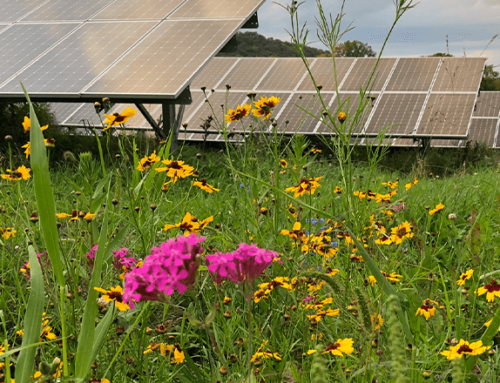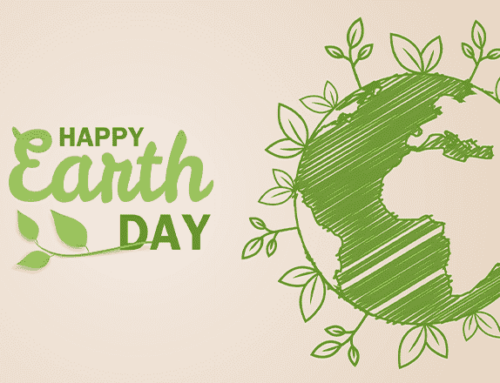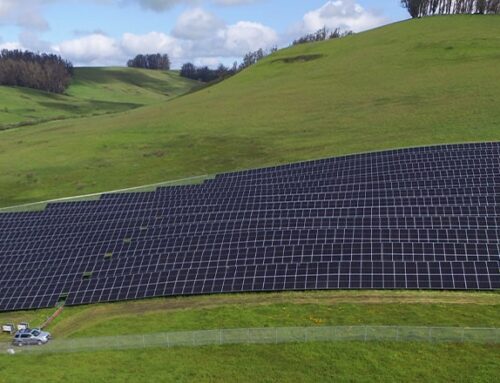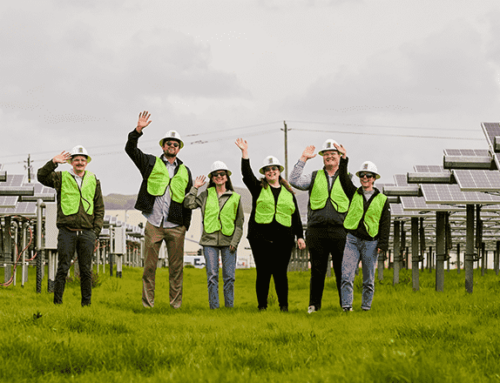According to the most recent U.N. climate report, 2020 was one of the top three warmest years on record. The climate crisis threatens the health and safety of our local communities. Simple changes can combat the climate crisis and help ensure clean, healthy, and sustainable communities for future generations. Here are ways you can take action.
Reduce Plastic Waste
Cut down on single-use plastics to reduce waste in your community. It takes 1,000 years for a plastic bag to degrade in a landfill. Plastics don’t break down completely but instead photo-degrade, becoming microplastics that absorb toxins and continue to pollute the environment. Plastics are made from oil, coal, and natural gas, which results in toxic emissions that harm communities and contribute to climate change. In 2018, the U.S. generated 35.7 million tons of plastic, of which only 8.7% was recycled.
“The plastic pollution crisis and climate change are tightly tied together. Plastic is made from fossil fuels and greenhouse gases are also emitted in manufacturing and disposal. Scientists also believe that microplastics accumulating in our oceans are compromising the capacity of microscopic plants and animals to sequester carbon. Once you’ve adopted [a plastic-free] lifestyle, you can have a ripple effect on your friends and family. We can’t solve the problem of plastic pollution alone, but we can work together to support policies and mission-based companies that reduce plastic waste.” –Sandra Ann Harris, author of “Say Goodbye To Plastic: A Survival Guide For Plastic-Free Living” and CEO of plastic-free ECOlunchboxes based in Lafayette, Calif.
Here are some tips for reducing your plastic usage:
- Choose reusable shopping bags.
- Invest in reusable containers and a reusable water bottle.
- Buy in bulk to reduce packaging.
- Order to-go drinks in reusables like a mason jar, water bottle, or insulated coffee thermos.
- When you eat out, carry reusable utensils and drinking straws.
- Buy products in paper packaging that can be composted or recycled.
- Use beeswax food wraps, cloth bags, and silicone storage solutions.
Conserve Water
Climate change is causing more severe droughts in California. State reservoirs levels are 50% lower than average, and scientists believe we may be entering one of the most severe droughts in over 1,200 years. Conserving water reduces the amount of energy and greenhouse gas emissions needed to process and deliver water.
“Water has a purpose and it’s important to use it that way. For example, make sure that the water isn’t running unnecessarily as you’re washing dishes. Try to shave a minute or two off your shower every day. If you find a leak around the house, fix it immediately. Water your lawn not more than three times a week and use mulch in your landscaping to reduce your water needs. These are all little things that people can do to make a difference for everyone in the community.” – Charles Bohlig, Supervisor of Water Conservation, EBMUD
Here are some tips for conserving water:
- Install water-saving faucet aerators and showerheads. See if you qualify for MCE’s Energy-Saving Gift Box with free water-saving features.
- Fix all leaks immediately.
- Turn off the water while you wash your face, brush your teeth, or scrub the dishes.
- Take shorter showers, even a minute shorter can save about 2-gallons each time.
- Wait until you have a full load before running the dishwasher or washing machine.
- Landscape with drought-resistant plants.
- Invest in mulch for your landscaping to reduce weeds and evaporation.
Compost Food Scraps and Yard Waste
Food scraps and yard waste represent around 30% of our garbage. Around 96% of food that could be composted ends up in landfills and incinerators. When organic material like food waste is landfilled, it breaks down anaerobically (without oxygen), creating methane and other greenhouse gases that leak from landfills and contribute to climate change. Methane is 25 times more potent than CO2 over a 100-year period (EPA). Landfills are the third-largest source of human-generated methane emissions in the United States (EPA).
Composting reduces greenhouse gas emissions from landfill waste. When it’s used in agriculture, compost decreases reliance on synthetic fertilizers and conserves water by improving the water dynamics of soil.
“When organic material breaks down in a landfill, it creates methane and other greenhouse gases that contribute to climate change. By placing your food scraps, uneaten leftovers, peels and food-soiled paper (napkins) in your green cart, you can help prevent the creation of harmful greenhouse gases and produce a soil amendment for California farmers.” – Marin Sanitary Service
Here are some composting tips:
- Visit your local waste hauler’s website to learn what is and isn’t compostable in your area.
- Collect food scraps in a bowl or food waste pail in your kitchen.
- Place compostable items in a brown paper bag (plastic bags must be placed in the trash) before putting them in your green bin.
- To keep your green cart cleaner, layer yard waste, pizza boxes, and food.
- To prevent odors in your green cart, freeze your compostable material.
- Because bio bags and compostable plastics contaminate the organic composting process, put them in the trash, not in your green cart.
Reduce Your Carbon Footprint
We must all work to reduce our carbon footprint for the future of our communities. On a global scale, reducing your carbon footprint can help mitigate the climate crisis. On a local level, your community will benefit from reduced air pollution, which causes over 7 million deaths each year.
Here are some tips for reducing your carbon footprint:
- Choose Deep Green 100% renewable energy.
- Switch from gas to electric appliances.
- Use sustainable transportation options like walking, biking, public transportation, or electric vehicles.
- Unplug devices that you aren’t using.
- Eat sustainably by buying local and plant-based foods when possible.








